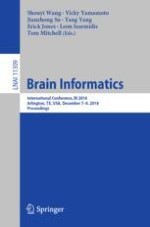2018 | OriginalPaper | Buchkapitel
Computational Model for Reward-Based Generation and Maintenance of Motivation
verfasst von : Fawad Taj, Michel C. A. Klein, Aart van Halteren
Erschienen in: Brain Informatics
Aktivieren Sie unsere intelligente Suche, um passende Fachinhalte oder Patente zu finden.
Wählen Sie Textabschnitte aus um mit Künstlicher Intelligenz passenden Patente zu finden. powered by
Markieren Sie Textabschnitte, um KI-gestützt weitere passende Inhalte zu finden. powered by
